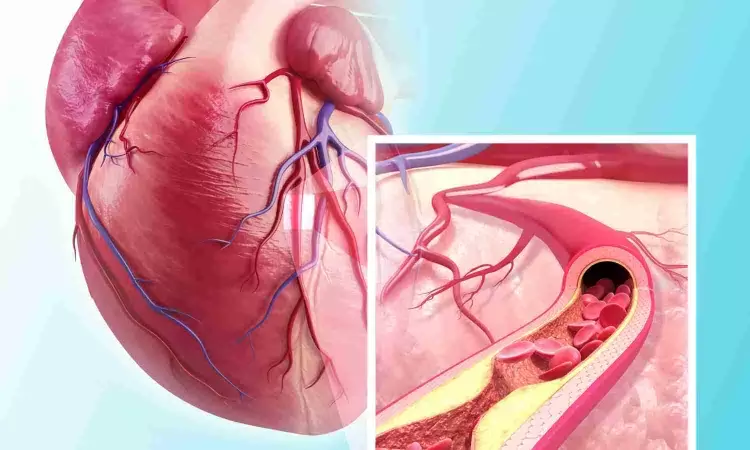- Home
- Medical news & Guidelines
- Anesthesiology
- Cardiology and CTVS
- Critical Care
- Dentistry
- Dermatology
- Diabetes and Endocrinology
- ENT
- Gastroenterology
- Medicine
- Nephrology
- Neurology
- Obstretics-Gynaecology
- Oncology
- Ophthalmology
- Orthopaedics
- Pediatrics-Neonatology
- Psychiatry
- Pulmonology
- Radiology
- Surgery
- Urology
- Laboratory Medicine
- Diet
- Nursing
- Paramedical
- Physiotherapy
- Health news
- Fact Check
- Bone Health Fact Check
- Brain Health Fact Check
- Cancer Related Fact Check
- Child Care Fact Check
- Dental and oral health fact check
- Diabetes and metabolic health fact check
- Diet and Nutrition Fact Check
- Eye and ENT Care Fact Check
- Fitness fact check
- Gut health fact check
- Heart health fact check
- Kidney health fact check
- Medical education fact check
- Men's health fact check
- Respiratory fact check
- Skin and hair care fact check
- Vaccine and Immunization fact check
- Women's health fact check
- AYUSH
- State News
- Andaman and Nicobar Islands
- Andhra Pradesh
- Arunachal Pradesh
- Assam
- Bihar
- Chandigarh
- Chattisgarh
- Dadra and Nagar Haveli
- Daman and Diu
- Delhi
- Goa
- Gujarat
- Haryana
- Himachal Pradesh
- Jammu & Kashmir
- Jharkhand
- Karnataka
- Kerala
- Ladakh
- Lakshadweep
- Madhya Pradesh
- Maharashtra
- Manipur
- Meghalaya
- Mizoram
- Nagaland
- Odisha
- Puducherry
- Punjab
- Rajasthan
- Sikkim
- Tamil Nadu
- Telangana
- Tripura
- Uttar Pradesh
- Uttrakhand
- West Bengal
- Medical Education
- Industry
Evolocumab Reduces Cardiac Events in High-Risk Patients Without Prior MI or Stroke: NEJM

USA: Researchers have found in a new study that Evolocumab reduces cardiac events in high-risk patients without prior myocardial infarction (MI) or stroke.
The VESALIUS-CV trial, involving 12,257 patients over 4.6 years, showed that adding the PCSK9 inhibitor evolocumab to standard lipid-lowering therapy significantly reduced adverse cardiac events in individuals with atherosclerosis or high-risk diabetes who had no history of MI or stroke. The results were presented at the American Heart Association meeting and published in The New England Journal of Medicine.
The study, led by Dr. Erin A. Bohula and colleagues from the Thrombolysis in Myocardial Infarction (TIMI) Study Group, Division of Cardiovascular Medicine, Brigham and Women’s Hospital, Boston, aimed to assess the potential of evolocumab in preventing major adverse cardiovascular events (MACE) in a patient group typically considered at risk but without prior cardiovascular events.
This large, international, double-blind, randomized, placebo-controlled trial included participants with either documented atherosclerosis or diabetes, who had low-density lipoprotein cholesterol (LDL-C) levels of at least 90 mg/dL. Participants were randomly assigned in a 1:1 ratio to receive either evolocumab 140 mg every two weeks or placebo, in addition to standard lipid-lowering therapy.
The key findings were as follows:
- The median age of participants was 66 years. Women comprised 43% of the study population. Most participants (93%) were White. The median follow-up period was 4.6 years.
- Evolocumab significantly reduced major cardiovascular outcomes compared with placebo.
- A three-point MACE (death from coronary heart disease, myocardial infarction, or ischemic stroke) occurred in 6.2% of the evolocumab group versus 8.0% of the placebo group.
- This corresponded to a 25% relative risk reduction (HR 0.75).
- For the broader four-point MACE (including revascularization), events occurred in 13.4% of evolocumab-treated patients compared to 16.2% in the placebo group.
- This reflected a 19% reduction in risk (HR 0.81).
- There were no significant differences in safety outcomes between the two groups, indicating good tolerability of evolocumab.
These results build on previous evidence showing the efficacy of PCSK9 inhibitors in reducing cardiovascular risk among patients with prior events and now extend the benefit to those in the primary prevention category with established atherosclerosis or diabetes.
In summary, the VESALIUS-CV trial establishes that evolocumab, when added to standard lipid-lowering therapy, can substantially lower the likelihood of first cardiovascular events in patients without a history of MI or stroke but with elevated risk profiles.
"The study highlights the growing role of PCSK9 inhibitors in preventive cardiology and suggests a potential shift toward broader use of these agents in managing high-risk individuals before a first cardiovascular event occurs," the authors concluded.
Reference:
Bohula EA, et al. N Engl J Med. 2025;doi:10.1056/NEJMoa2514428.
Dr Kamal Kant Kohli-MBBS, DTCD- a chest specialist with more than 30 years of practice and a flair for writing clinical articles, Dr Kamal Kant Kohli joined Medical Dialogues as a Chief Editor of Medical News. Besides writing articles, as an editor, he proofreads and verifies all the medical content published on Medical Dialogues including those coming from journals, studies,medical conferences,guidelines etc. Email: drkohli@medicaldialogues.in. Contact no. 011-43720751
Next Story


